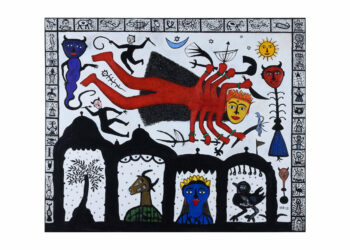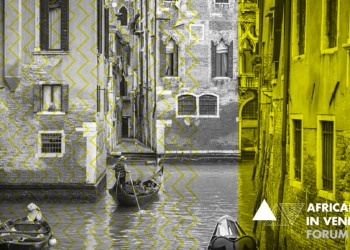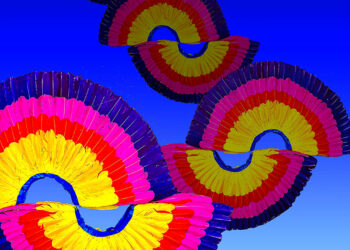The Alexandrian-born artist Wael Shawky (b. 1971) will represent Egypt at the 60th International Art Exhibition of La Biennale di Venezia.
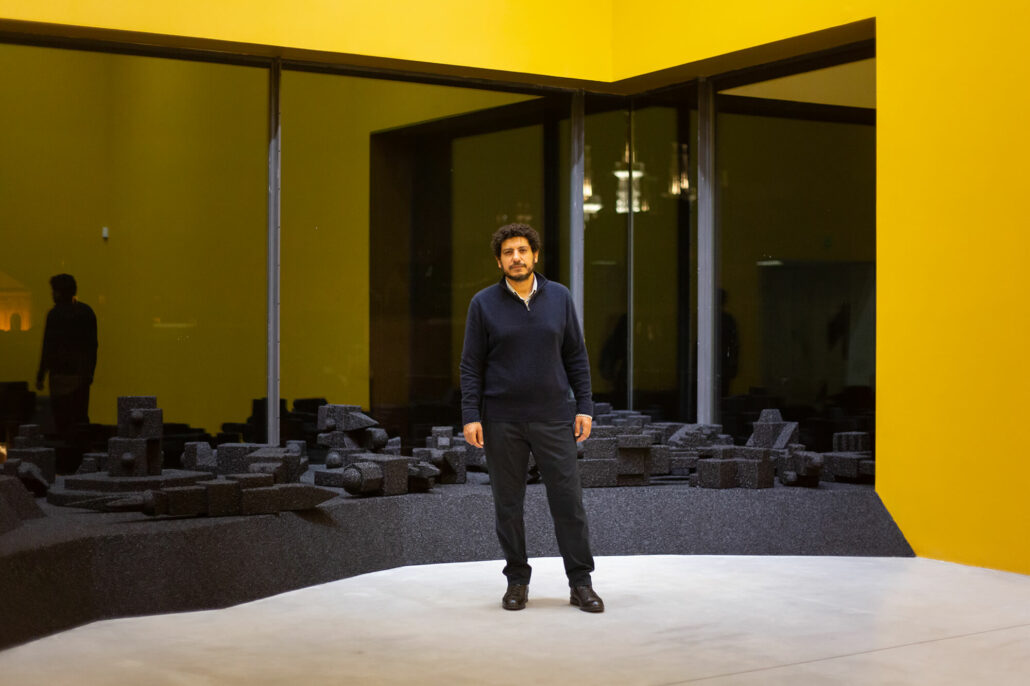
Wael Shawky, 2022. © Lien Wevers for M Leuven. Courtesy of Sfeir-Semler Gallery, Lisson Gallery, Galleria Lia Rumma, and Barakat Contemporary
A natural storyteller, Shawky takes historical and literary references as starting points for his immersive narratives that interweave fable, fact and fiction to tackle common notions of national, religious and artistic identity. Based on extensive periods of research and enquiry, his work across film, performance, painting, drawing and sculpture inverts and reframes contemporary culture through the lens of historical tradition and events.
For the Egyptian Pavilion, Shawky has created Drama 1882, a filmed rendition of an original musical play directed, choreographed, and composed by the artist, around Egypt’s nationalist Urabi revolution against imperial influence (1879-82). The year 1882 was the year this revolt was crushed by the British, who then went on to occupy Egypt until 1956. In part inspired by the Biennale Arte 2024 theme “Foreigners Everywhere”, Shawky said: “There was a revolt led by the Egyptian Colonel Ahmed Urabi and his army against the Egyptian monarch, calling him a traitor because he fell prey to the British and French. The interesting thing about this discourse is the idea of the foreigners – what does it mean to be ‘foreigners’? Who were they? They were the occupiers – it was not the idea of immigrants that we have today.”
Sung in classical Arabic by professional performers, the work marks a departure for Shawky: “Normally I insisted on erasing drama from my previous films, so I opted for puppets, marionettes, and children. This time drama has several meanings: There is the sense of make believe, connected to the idea of having a show, like theatre. There is no theatrical performance in ‘Drama 1882’. The background is moving in slow motion, as if in layers. In the end this makes the work like a moving painting, with the performers and soundtrack being elements in this composition. The word ‘drama’ has many implications: it conjures a sense of entertainment, the sense of catastrophe and our inherent doubt in history.”
The film is accompanied by vitrines, sculpture, paintings, drawings and a mirror relief made in Murano.
In accepting the invitation to represent Egypt at the 60th International Art Exhibition of La Biennale di Venezia, Shawky said: “This is a moment of global political urgency and revolutionary change. It seemed paramount to represent my country with a strong message at this time. To reflect on the historic occupation in Egypt felt timely, pressing, and important.”
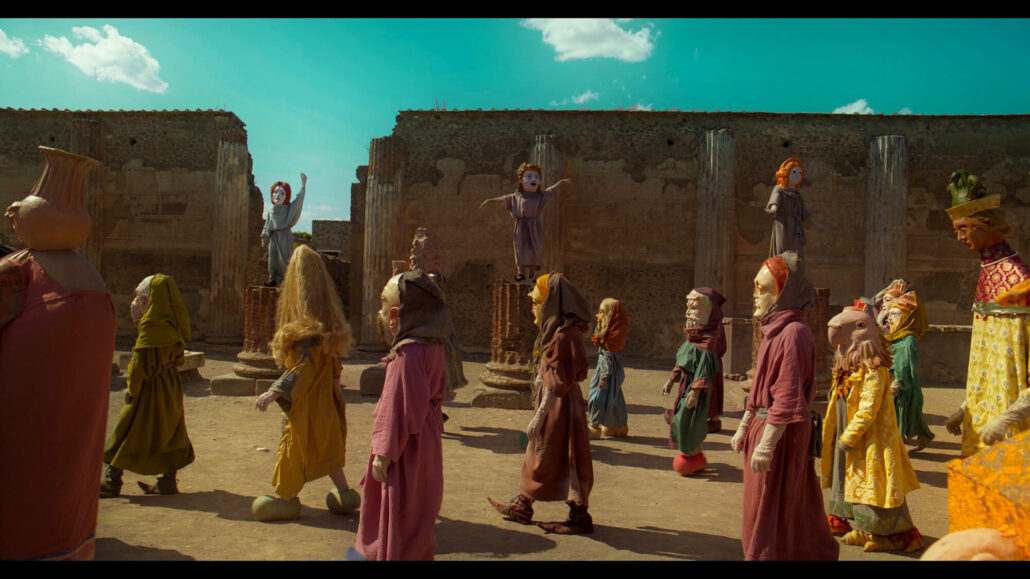
Wael Shawky, I Am Hymns of the New Temples, 2023. Video still. Courtesy Ministero della Cultura – Archaeological Park of Pompeii, in the context of Pompeii Commitment. Archaeological Matters © Wael Shawky
In an essay on Shawky, the distinguished Egyptian critic and author Yasmine El Rashidi writes: “Shawky’s practice is rooted in his deep relationship to the history and cultural heritage of the Arab world. His work adheres to the premise that history is a record of subjectively depicted sequences rather than indisputable facts, which he posits to create elaborately choreographed re-stagings and interpretations of historic events. By meticulously blurring lines of recorded fact and possible fictions, and studiously interweaving into his narratives the spiritual and whimsy, Shawky’s work offers poetically alternate prisms with which to consider pivotal moments in history.
In his new theatrical film, Drama 1882, Shawky continues his ongoing practice of historical renditions transforming the Egyptian Pavilion into the center-stage for a timely and critical conversation around the necessity of revisionist histories and the futility of war.”
The Egyptian Pavilion is commissioned by the Egyptian Ministry of Culture – Accademia d’Egitto. The Pavilion is supported by Sfeir-Semler Gallery, Lisson Gallery, Galleria Lia Rumma and Barakat Contemporary and generously sponsored by Gratus Foundation, Riad Armanious and Natalie Ashba, Masha and Shihab Shobokshi and Mai Eldib.
The 60th International Art Exhibition of La Biennale di Venezia will run from the 20th of April until the 24th of November, 2024.
